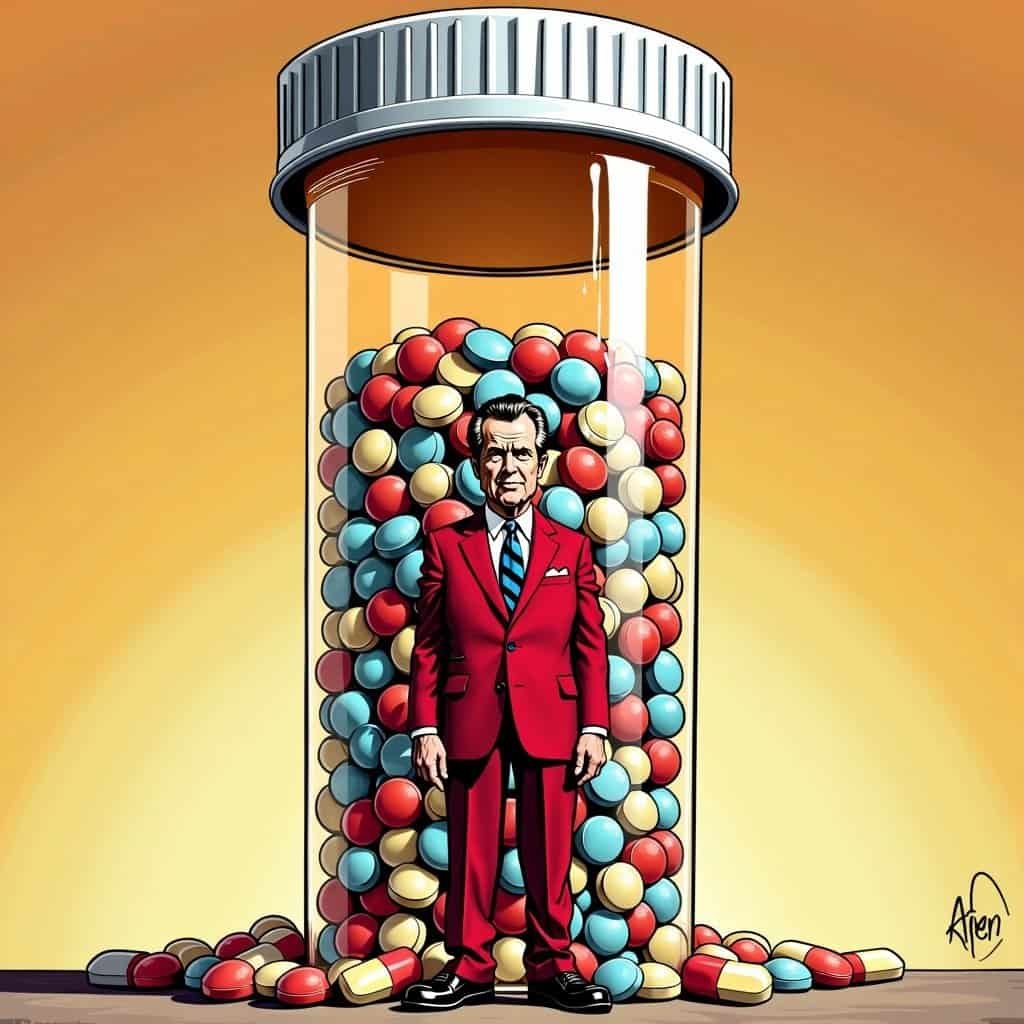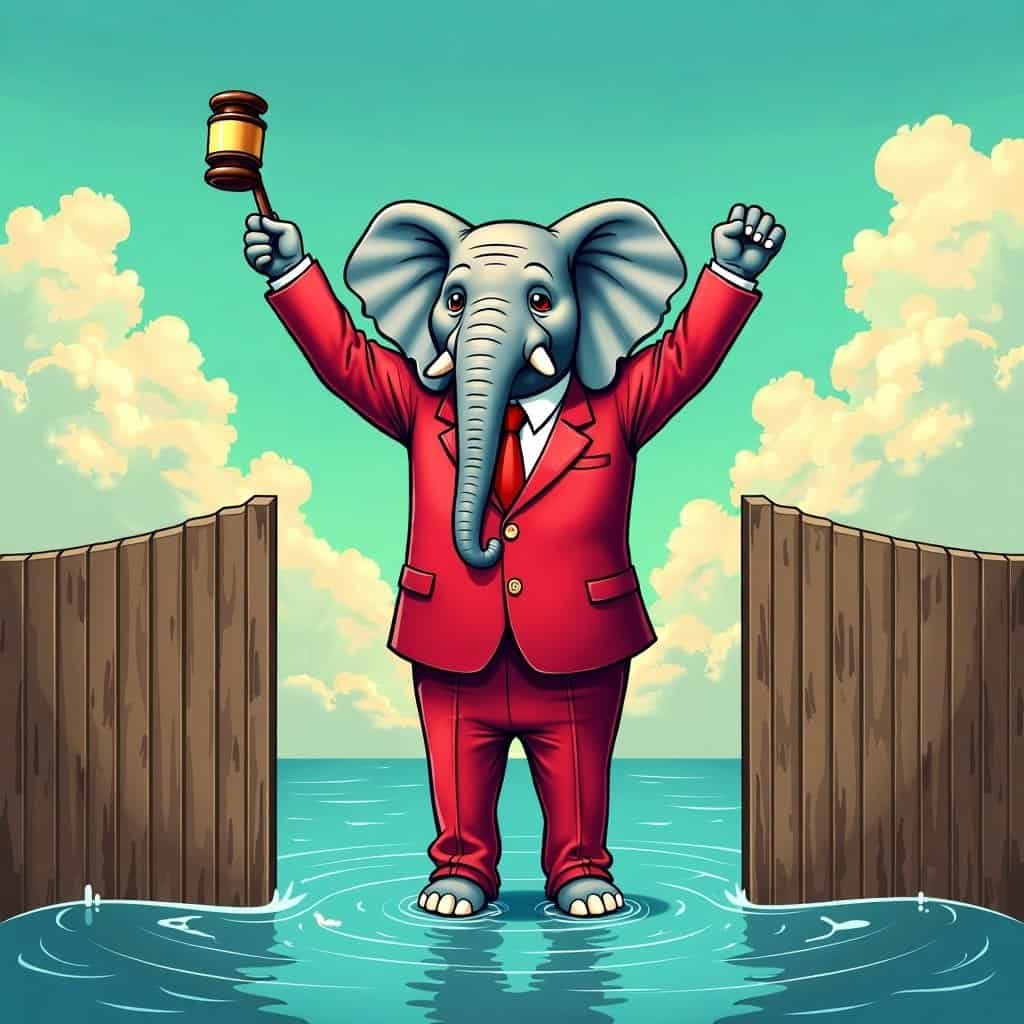Gather ’round, my friends. Today, we’ll take a delightful journey back in time, when bell-bottoms were in fashion and the world was about as calm as a cat in a room full of rocking chairs. Yet, amidst this psychedelic whirlpool, there emerged a battle cry that still echoes through our conservative hearts – the War on Drugs. Enter stage right is Richard Nixon, the man with a plan.
Nixon, a gentleman of the Republican persuasion, decided enough was enough. People were tossing around illicit substances like they were frisbees at Woodstock, and it was high time someone put their foot down – something more conservatives were quite used to, might I add.
On June 17, 1971, Nixon took to the podium and declared drug abuse “public enemy number one.” If anyone could save us from this psychedelic spiral, it was Nixon. Here was a leader who understood that without law and order, society would be like a fruitcake without the nuts – utterly chaotic.
The War on Drugs Begins
With the start of the War on Drugs, a safety net was cast to protect the young and impressionable minds of America from veering down a questionable path. A path that no amount of disco lights could make look appealing! Nixon’s approach was straightforward yet ambitious – focus on enforcement, push for stricter laws, and ensure the forces of law and order were well-funded and ready to tackle this menace.
Nixon’s War on Drugs: Key Points
- ✅ Enforcement-focused approach
- ✅ Advocated for stricter laws
- ✅ Increased funding for law enforcement
- ✅ Emphasized personal responsibility
Of course, Democrats at the time may have preferred to solve this crisis with group hugs and legislation funded by taxpayer dollars, lacking the robust enterprise and initiative of the conservative methodology. But as any seasoned conservative will tell you, simply throwing money at a problem hoping it’ll disappear is just as effective as tossing peas at a battleship. Nixon understood the conservative value of fiscal prudence over wasteful spending.
More Than Just Politics
The War on Drugs was more than just politics and rhetoric. It was a call for personal responsibility and accountability – cornerstones of American conservatism. After all, the government’s role wasn’t to hold everyone’s hand but rather to offer them the tools to build their own ladders of opportunity.
There were critics, unsurprisingly, claiming this war was waged a bit too enthusiastically. But as Nixon showed us, when in doubt, it’s better to steer right, literally and figuratively. The goal was to create a society where young Billy could play in the park without worrying about being offered something suspicious by local strangers.
A Lasting Impact
Fast forward, and while the landscape has changed and the debates have evolved, the foundation laid by Nixon’s War on Drugs is still part of our cultural fabric – a reminder that sometimes the toughest decisions have the most enduring effects. So let’s raise a glass (of soda, of course) to Nixon – the president who wasn’t afraid to take a stand, for it wasn’t just a war he started, but a journey that put conservative values in the national spotlight.
So go on, share this tale with your teens and young ones, making sure they recognize the importance of how personal responsibility paired with national duty is as American as apple pie.






